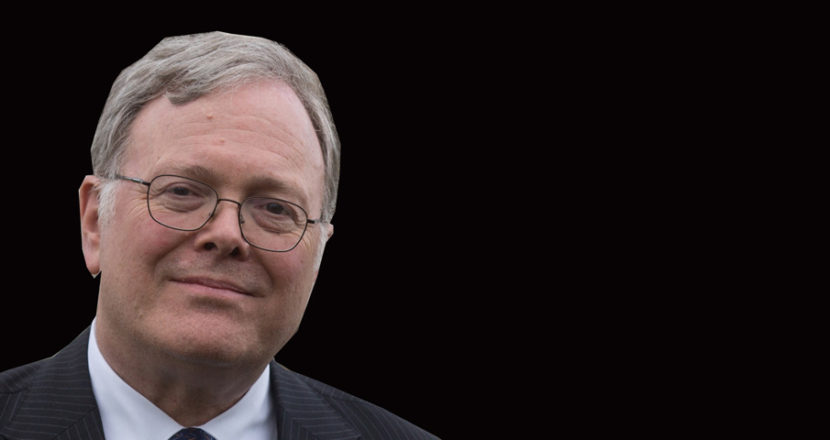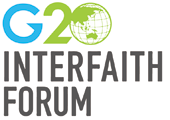
平和、人類と地球:持続可能な開発に向けた宗教の相乗効果を探る
オーストラリア(2014年)に始まり、イスタンブール(2015年)、中国(2016年)、ドイツ(2017年)、アルゼンチン(2018年)、そして、今回の日本(2019年)へと続いてきた、G20インターフェース・フォーラムが、一貫して追及してきたものがあります。それは、宗教に基づくコミュニティや機関、またその指導者や信者らが、G20レベルの公共政策の形成に、協調的にどう関われるかということでした。日本で開催される、今回のフォーラムは過去最大規模になることが確実です。それに見合って、これまでのイベントより、より大きな影響力を持つものになると期待します。
G20プロセスの関心事は、2008年当初は、財政や経済問題に限られたものでした。それが、持続可能な開発に関わる、幅広い事象へと拡大してるのです。それに伴って、宗教の持つ役割は、日に日に明らかになっています。これまで、G20サミット会合が、繰り返し参照した国連の持続可能な開発目標を取っても、それは明らかです。つまり、それらのほとんどが、宗教界の全面的な支援なしでは、到底達成は不可能なのです。この事は、誰もが知る明白な事です。そうした、目標に向けた歩みを進めるために、「相乗効果」こそが、大きなキーワードになるのです。
以下の数例だけを見ても、そのことは明らかです。目標1と2、すなわち貧困と飢餓をなくすことは、全ての主要宗教が掲げる目標と、慈善活動で合致してます。目標3(保健と福祉)は、世界中のヘルスケアの三分の一を提供し、しばしば最も届きにくい人々のところに、それを届けることができるのです。こういう、宗教的機関の協力なしには、とうてい達成できないものばかりです。同様に、質の高い教育(目標4)も、宗教を基盤とする教育機関の関与が必要です。ジェンダーの平等(目標5)にとって、宗教は障害とみられることが多いですが、そうではありません。女性の生活向上に果たす宗教機関の役割は、想像以上に大きいのです。いくつかの目標(6, 7, 12, 13, 14, 15)は、環境問題に関連します。それは、世界中の宗教の、中心的関心事になってるのです。宗教に基づくコミュニティや機関は、働きがい(目標8)、不平等の解消(目標10)、持続可能なコミュニティづくり(目標11)においても、重要な役割を担ってます。これら、多くの課題において、宗教コミュニティは膨大な経験を持ってます。だから、有意義な貢献をすることができます。また、宗教界の発言は、特定の課題―たとえば今年のフォーラムにおいて、「緊急課題」として取り上げられる議題は、世界の注目を集めることに効果的でしょう。
しかし、これら全ての分野で大切なことは、宗教界の影響力を高めることではないのです。それは、潜在的な危険に注意を払い、「相乗効果」を得る道を探り、具体的効果を発揮する政策提言を行うことです。
今年のフォーラムには、「相乗効果」をもたらす政策提言を行うのに、優れた能力のある宗教指導者や、政策立案者、その他の関係者が多数集います。今年のフォーラムの開催を可能にした、スポンサー機関のそれぞれに、大いなる謝意を表します。また、フォーラムを成功に導く、多くのスピーカーの皆様にも、心から感謝いたします。ご参加の皆様からの、積極的な貢献に期待する次第です。
G20 インターフェース・フォーラム・アソシエーション代表
W・コール・ダラム, Jr.
Greeting
Chair, G20 Interfaith Forum Association
W. Cole Durham, Jr.
Peace, People, and Planet : Identifying Religious Synergies for
Sustainable Development
The consistent aim of successive G20 Interfaith Forums, beginning in Australia (2014), and continuing in Istanbul (2015), China (2016), Germany (2017), Argentina (2018), and now in Japan (2019), has been to identify ways that religious communities, institutions, and their leaders and followers can interact synergistically with public policy formation at the G20 level. The Forum in Japan promises to be the largest and we hope most influential event in the Forum series thus far.
As the focus of the G20 process has broadened from its initial emphasis on financial and economic issues in 2008 to a broader range of issues related to sustainable development, the relevance of religious input has become more and more obvious. If one focuses only on the United Nations Sustainable Development Goals, which are the recurring focus of successive G20 Summits, it is clear that most of these cannot be accomplished without massive support from the religious sector. Finding synergies will be vital to optimizing progress with respect to those goals.
A few examples suffice to make this obvious. SDGs 1 and 2, which aim at eliminating poverty and hunger, align with the aims and charitable practices of all major religions. Achieving SDG 3 (Good health and well-being) is unthinkable without engaging religious institutions, which provide over one-third of health care services on earth, and are often best at reaching those most in need. Similarly, quality education (SDG 4), involves religious educational institutions. Religion is often seen as a barrier to gender equality (SDG 5), but the importance of religious institutions in supporting and bettering the lives of women cannot be overlooked. Several of the SDGs (6,7, 12, 13, 14, and 15) relate to a variety of environmental issues that have become central concerns for religious bodies around the world. Religious communities and institutions also have much to contribute in workplace settings (SDG 8), challenging inequalities (SDG 10) and building sustainable communities (SDG 11). With all of these issues, religious communities have vast experience and much to contribute. And of course there are many other issues that religious voices are particularly effective in calling to the world’s attention—as exemplified by the urgent issue sessions of this year’s Forum.
But in all of these areas, the challenge is not only to recognize the relevance of religion, but more importantly to identify potential synergies while maintaining a clear-eyed view of potential problems, and then to identify concrete policy recommendations that can have real world impact.
This year’s Forum brings together an array of religious leaders, policy makers, and others who are particularly qualified to help identify the relevant synergies and policies. We are immensely grateful to the sponsoring organizations who have made this gathering possible and to the speakers who are the key to the Forum’s success this year. We look forward to the contributions of all who participate.
